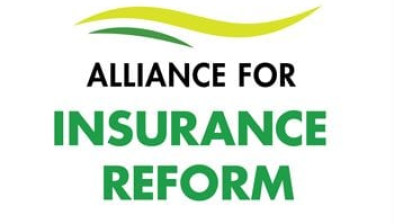Court of Appeal: Zurich Insurance fails to set aside third party notice in indemnity proceedings

The Court of Appeal has dismissed an appeal by Zurich Insurance plc seeking to set aside a third party notice in personal injury proceedings where cover was denied. It had been claimed by Zurich that the dispute regarding insurance cover was “entirely different” from the personal injuries proceedings and therefore the joinder application should have failed.

About this case:
- Citation:[2021] IECA 249
- Judgment:
- Court:Court of Appeal
- Judge:Mr Justice Seamus Noonan
It was held that Zurich failed to identify any error by the High Court judge in refusing to set aside the notice and that, in reality, “much of what is advanced is a reiteration of the merits of its case”. The court held that the defendant was entitled to take indemnity proceedings against Zurich where there was a contract of insurance in place.
Background
The defendant, Quinns of Baltinglass Limited, were sued in personal injuries proceedings after the plaintiff attended its agri-store business for cattle meal. The meal was dispensed by a vehicle called a Manitou Maniscopic Loader, which was designed for road use. The plaintiff’s arm was crushed by the machine while he was using it.
At the time, Quinns held two policies of insurance. First, there was a public liability insurance contract between Quinns and Amlin UK. Second, there was a commercial vehicle fleet policy held with Zurich.
The defendant initially notified Amlin of the claim and a solicitor was nominated by Amlin to represent Quinns in the proceedings. However, the solicitor later wrote to Zurich seeking indemnity and threatening to join Zurich if no such indemnity was provided. An application to join Zurich as a third party was subsequently granted.
Zurich had taken the view that the accident was not covered because the vehicle was not being used as transport at the time of the accident and therefore the commercial fleet policy did not apply. The insurer brought a motion to set aside the third party notice, but this motion was rejected by the High Court.
It had been submitted by Zurich that the third party notice disclosed no reasonable cause of action against it. It was stated that Zurich was not a concurrent wrongdoer in the case and owed no duty to the plaintiff. As such, it was said that the dispute between Quinns and Zurich was entirely separate to the personal injuries proceedings.
It was argued that Quinns had delayed in bringing the joinder motion, which again was a reference to the provisions of s.27 of the Civil Liability Act 1961 relating to concurrent wrongdoers. Finally, it was said that it was actually Amlin which were making the claim against Zurich but that Amlin had no locus standi to bring the claim because there was no contract between the insurers.
The trial judge noted that the indemnity question was potentially a complex piece of litigation but that it did not fall to be considered in the judgment. The court referenced the principle of subrogation which entitled Amlin to stand in the shoes of Quinns in pursuit of Zurich.
Further, it was held that s.27 of the 1961 Act did not apply because Zurich and Quinns were not concurrent wrongdoers in the case. As such, the requirement to join Zurich as soon as reasonably possible did not arise. The court was not satisfied that any of the delay identified by Zurich was such to set aside the notice.
It was held that the third party procedure was “clearly applicable” in the case because Order 16 was not confined merely to concurrent wrongdoers (Gilmore v Windle [1967] IR 323). There was also a practical benefit to hearing the proceedings together because of the overlap in facts of the cases.
There was a clear cause of action which was properly pleaded in the matter and accordingly, the judge refused to set aside the notice. The decision was appealed by Zurich.
Court of Appeal
Delivering judgment in the appeal, Mr Justice Seamus Noonan summarised Zurich’s appeal as a contention that the trial judge erred by concluding that the case was a subrogation claim. It was claimed that the case was actually a claim for contribution which was independent of subrogation.
The court distinguished the authorities relied on by Zurich, stating that they dealt with situations where a plaintiff sought to directly sue a defendant’s insurer. As such, the court held that they did not provide authority for the proposition that Zurich could not be pursued by Quinns (Kennedy v Casey t/a Casey & Company [2015] IEHC 690; McCarron v Modern Timber Homes [2013] 1 IR 169 considered).
The court was persuaded by the fact that it was Quinns which brought the joinder application and that the solicitor on record averred that he represented Quinns, rather than Amlin. The evidence did not establish “one way or the other” whether this was a subrogation claim, the court said.
Further, it was noted that Zurich advanced an entirely new argument on the appeal, which was that if there was dual insurance in the case, it was appropriate for Amlin to sue Zurich in its own name. The court applied the recent case of Promontoria (Arrow) Limited v Mallon & Anor [2021] IECA 130 and held that it was improper for Zurich to raise this new argument at the appeal hearing.
The court agreed with the trial judge that the third party procedure under Order 16 was not coterminous with the statutory provisions of the Civil Liability Act 1961. As such, the mere fact that Zurich was not a concurrent wrongdoer did not preclude the joinder application, particularly where Order 16 specifically refers to indemnity proceedings (ACC Bank Plc. v Johnston [2011] IEHC 108 applied).
The court held that the fact that the plaintiff’s claim had been settled by Quinns did not affect the validity of the joinder application. It was contended by Zurich that there would be no available evidence of the plaintiff’s account of the accident, but the court stated that this was not correct. The plaintiff could be called by either party as necessary, the court said.
The court was satisfied that the trial judge had taken the correct approach regarding the question of delay. The court opined that Zurich attempted to revisit the merits of its application rather than identify any error of law by the trial judge. Applying Lawless v Aer Lingus [2016] IECA 235, the court emphasised that an appeal should not attempt to engage in a de novo hearing of the original case.
Conclusion
It was held that the trial judge had properly exercised his discretion in refusing to set aside the third party notice and the appeal was dismissed. The court took the provisional view that Quinns was entitled to its costs.









